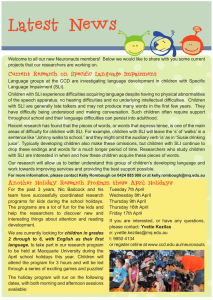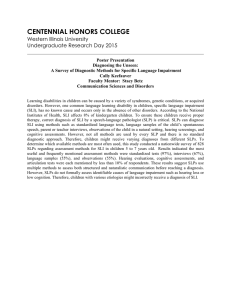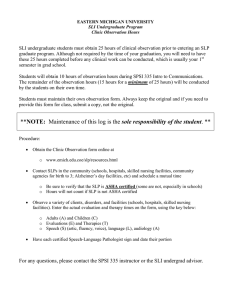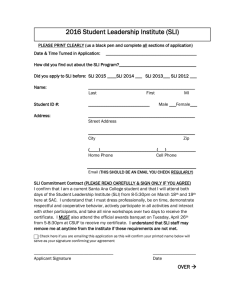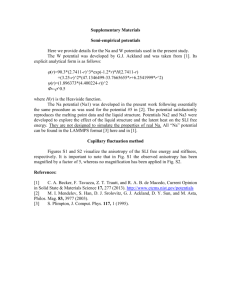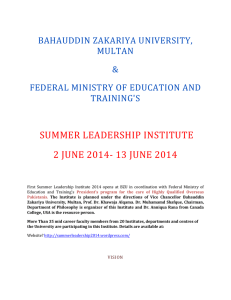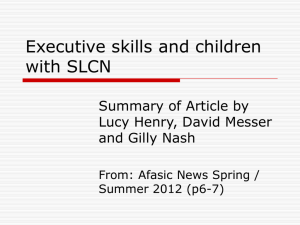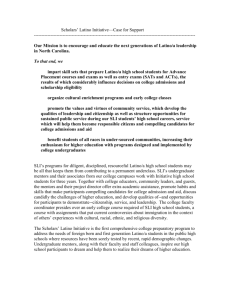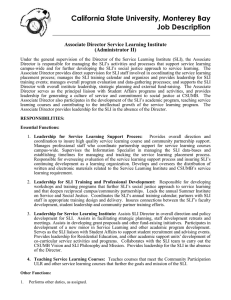The impact of specific language impairment on performance in science and suggested implications for pedagogy
advertisement
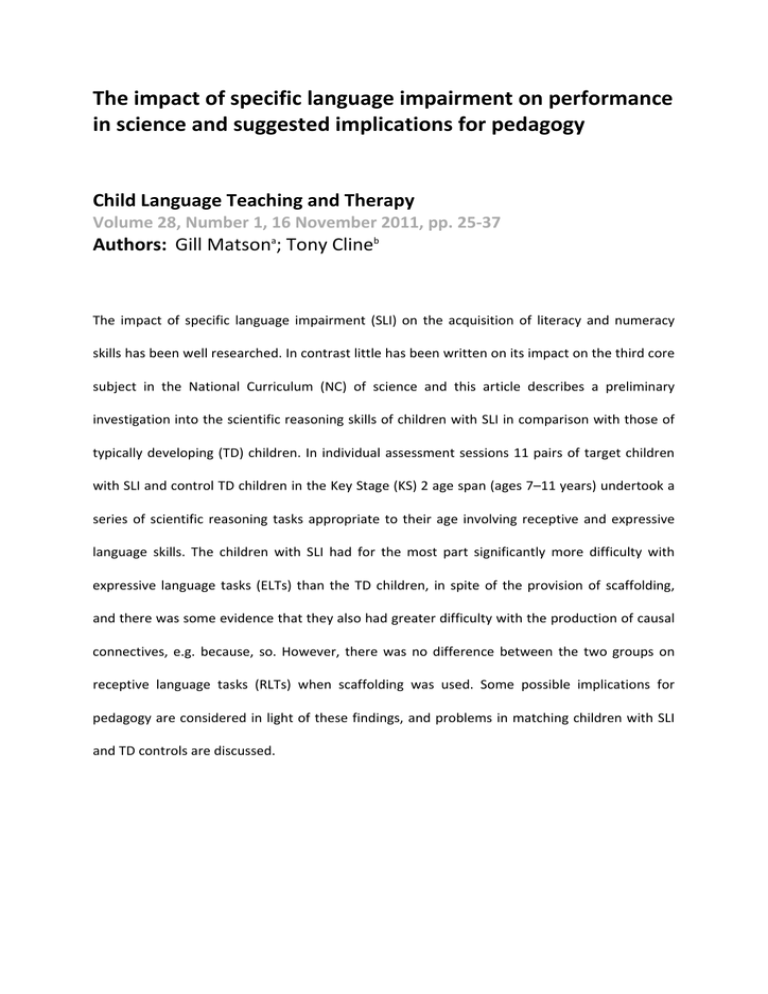
The impact of specific language impairment on performance in science and suggested implications for pedagogy Child Language Teaching and Therapy Volume 28, Number 1, 16 November 2011, pp. 25‐37 Authors: Gill Matsona; Tony Clineb The impact of specific language impairment (SLI) on the acquisition of literacy and numeracy skills has been well researched. In contrast little has been written on its impact on the third core subject in the National Curriculum (NC) of science and this article describes a preliminary investigation into the scientific reasoning skills of children with SLI in comparison with those of typically developing (TD) children. In individual assessment sessions 11 pairs of target children with SLI and control TD children in the Key Stage (KS) 2 age span (ages 7–11 years) undertook a series of scientific reasoning tasks appropriate to their age involving receptive and expressive language skills. The children with SLI had for the most part significantly more difficulty with expressive language tasks (ELTs) than the TD children, in spite of the provision of scaffolding, and there was some evidence that they also had greater difficulty with the production of causal connectives, e.g. because, so. However, there was no difference between the two groups on receptive language tasks (RLTs) when scaffolding was used. Some possible implications for pedagogy are considered in light of these findings, and problems in matching children with SLI and TD controls are discussed.

